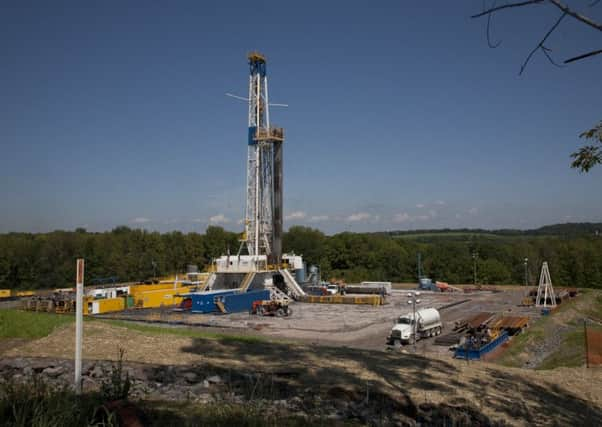Daniel Mahoney: Oil glut will not harm case for fracking


The 73 per cent increase in US oil production since 2010 has also contributed to a glut on the global oil market, which increasingly resembles “a sponge that cannot absorb anymore”.
Current oil price lows have led some to speculate about the economic viability of the UK’s nascent shale industry. This concern appears unjustified. Investment decisions in UK shale will be based on prospective prices in the 2020s when development is expected to be rolled out across the country.
Advertisement
Hide AdAdvertisement
Hide AdOil prices are unlikely to stay at current lows by the 2020s. Price pressures are already making many oil extractions uneconomic, which will gradually impact overall supply.
For example, there are signs that some North American shale producers are struggling after 42 US oil and gas companies filed for bankruptcy in 2015. As supply comes off stream, price pressures on oil are likely to emerge.
Moreover, current oil prices are unsustainable for the major oil producing countries that are highly dependent on income from hydrocarbon sales. Saudi Arabia’s current policy, for example, is having a detrimental impact on its finances.
It ran a budget deficit of 15 per cent of GDP last year and government spending as a percentage of GDP jumped from 40.8 per cent to 50.4 per cent in just 12 months, according to the International Monetary Fund.
Advertisement
Hide AdAdvertisement
Hide AdOf course, it is gas prices that will be the key consideration for investment in UK shale. British Geological Survey estimates suggest that Britain’s greatest potential lies in the unconventional gas reserves across Yorkshire and Lancashire.
Gas prices are correlated to oil prices. However, gas prices have not observed an equivalent decline in price over the past two years. In Europe, for example, the EU’s natural gas import price has declined from a peak of $11.59 per MMbtu in 2014 to $6.24 per MMbtu, which is a fall of 46 per cent compared to oil’s 75 per cent. It is also important to stress that being reliant on gas imports is costly.
The transportation, liquefaction and regasification of gas can add up to 50 per cent to the wholesale price, according to the UK Onshore Oil and Gas Industry Body. This leads the Lords Economic Affairs Committee to conclude that indigenous production of shale is likely to provide cheaper gas supplies compared to importing liquefied natural gas.
This is why current low oil and gas prices must not be used as an excuse to delay preparations for a thriving UK shale gas industry in the 2020s. The Government’s energy strategy will require 26 GW of new gas capacity, and without investment in shale gas development the Department for Energy and Climate Change estimates that the UK will be importing three-quarters of its gas demand by 2030.
Advertisement
Hide AdAdvertisement
Hide AdData shows that around 25 per cent of the UK’s gas is currently imported from Qatar. The UK would likely become more reliant on such sources for its gas supply without shale development. There is also a huge potential for direct and indirect job creation across Yorkshire and other parts of the North of England. It is estimated that UK shale gas development could support up to 74,000 jobs, according to the Institute of Directors.
To date, there has been a lack of exploratory drilling and hydraulic fracturing to assess the true potential of shale gas in the UK. The Government must ensure that such exploratory drilling can take place in a timely fashion, so the UK can realise the full benefits of shale. Exploratory drilling at various sites – including Third Energy’s application in North Yorkshire – should begin to take place towards the end of this year and early 2017. The Government must ensure that there is no slippage from this timetable.
Daniel Mahoney is head of economic research at the Centre for Policy Studies.